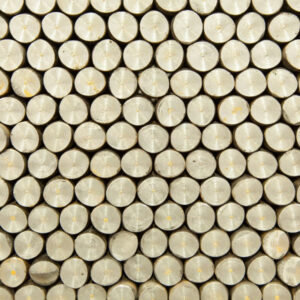Why Aluminum Alloy Is Used for Electrical Applications
 Aluminum alloy has long been used in various industries by contributing its advantages for better electrical work. But do you know why aluminum alloy is used for electrical applications? Below we go over what this material is, the properties that make this material excellent, and applications you can use the material for.
Aluminum alloy has long been used in various industries by contributing its advantages for better electrical work. But do you know why aluminum alloy is used for electrical applications? Below we go over what this material is, the properties that make this material excellent, and applications you can use the material for.
What Is Aluminum Alloy?
Aluminum is almost always in the form of an alloy. An alloy is when you combine two or more metallic elements to provide greater strength to the material. You typically pair aluminum with copper, nickel, zinc, magnesium, etc. We use this alloy in wind and solar applications, electrical work, and the automotive industry.
Natural Conductor of Electricity
Did you know that aluminum is capable of being a superconductor? This is because the material’s electrical resistance disappears when the magnetic flux field is removed. Because of this, the electrical current can continuously persist through the superconductor without using a power source.
Aluminum alloy is also paramagnetic. This means static magnetic fields are no longer a worry. This material can, however, be affected by a change in the magnetic field when induction happens.
Lightweight and Affordable
When you’re deciding which conductor to use for your electrical applications, aluminum alloy is both affordable and lightweight compared to its counterparts like copper or silver. For example, if copper wire can conduct the same amount of electricity as aluminum alloy, it would make sense to choose aluminum over copper because it won’t weigh down your application and will be more affordable. High cost is a common misconception about aluminum alloy—don’t listen to the myths; because of its low density and high resistance to corrosion, it’s one of the best and safest metals to use for electrical work and certainly less expensive than other metals like steel.
Common Applications for Aluminum Alloy
One of the most common uses for aluminum alloy in an electrical application is in a busbar system. This system helps distribute electricity for an industrial plant by connecting several circuits together. This is typical in electrochemical plants and smelters because aluminum is available in large cast bars.
You can also find aluminum in overhead powerlines because of how lightweight the metal is. We do not use copper because the conductivity-to-weight ratio is better for aluminum. You might also see this metal in consumer electronics because its excellent heat conductivity allows the devices to dissipate heat better. Other examples of electrical applications include foil windings and car motors.
Employees working with electricity must choose a suitable metallic material for conducting electrical currents to create a safer work environment. This material is ubiquitous in industrial applications because it helps advance production processes. Consider using aluminum alloy for your next electrical application.
Share on Socials!
Rent Megger MIT400 Series Insulation and Continuity Testers from Protec
Rosendin Electric Celebrates 100th Anniversary
Now Recruiting for These Positions!
Leaders in Electrical Safety
• Aramark
• Bowtie Engineering
• Enespro
• Ericson
• I-Gard Corporation
• IRISS
• KERMEL, INC.
• Lakeland Industries
• MELTRIC Corporation
• National Safety Apparel
• National Technology Transfer
• Oberon
• Saf-T-Gard
• SEAM Group
Subscribe!
Sign up to receive our industry publications for FREE!







